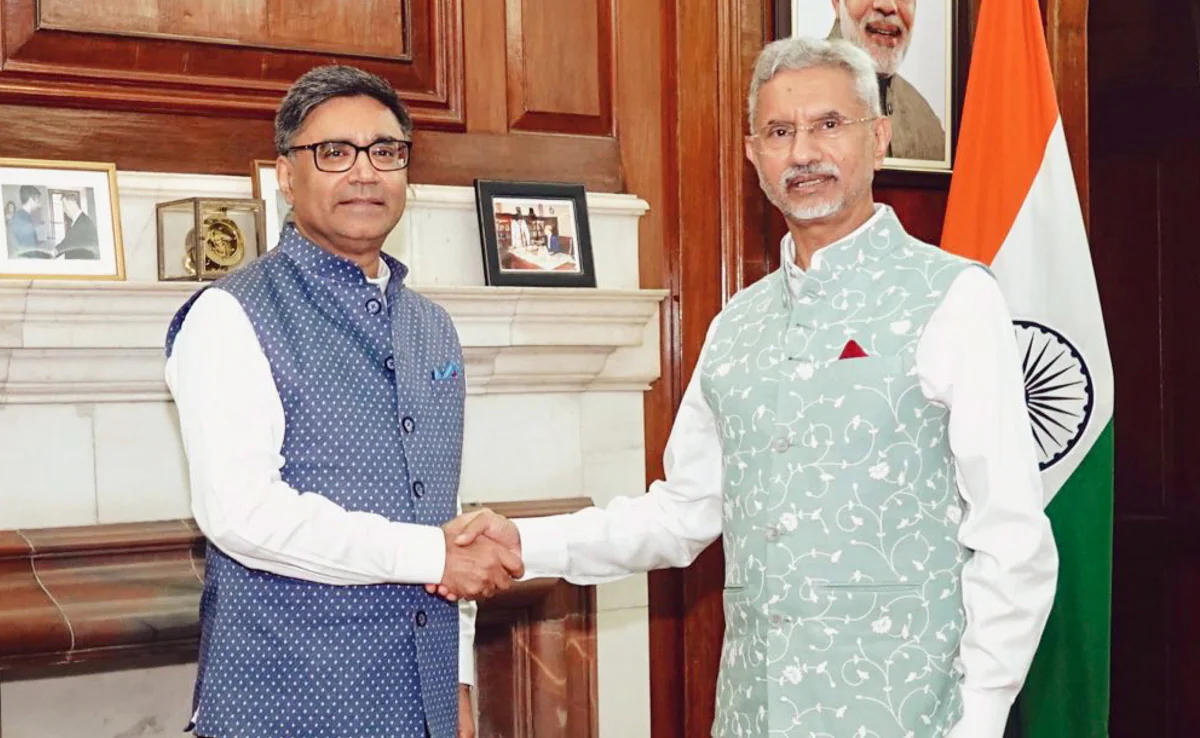INDIA'S 'SUICIDE DRONE' HITS LAHORE! Pahalgam Revenge with 'Operation Sindoor'?

NEW DELHI/KATHMANDU, May 9, 2025 – India has provided a detailed account of "Operation Sindoor," its retaliatory military actions following the "barbaric" April 22nd Pahalgam terror attack, which claimed 26 lives, including a Nepali national. The justification and specifics of the operation, which involved targeting nine alleged terrorist infrastructure sites in Pakistan and Pakistan-administered Kashmir, were laid out by India's Foreign Secretary Vikram Misri in briefings on May 7th and 8th. This comes amidst reports confirmed by the Indian Ministry of Defence of specific actions such as the use of Israeli-made Harop "suicide drones" against a reported missile site in Lahore, Pakistan, cited as a response to prior aggression from Pakistan.
Foreign Secretary Vikram Misri described the Pahalgam attack, perpetrated by "Pakistani and Pakistan-trained terrorists belonging to the Lashkar-e-Taiba," as an act of "extreme barbarity." He recounted how victims were mostly killed with head-shots from close range in front of their families, an act designed to "deliberately traumatize" and send a chilling message. The attack, he stated, aimed to derail normalcy in Jammu & Kashmir and cripple its tourism-based economy. The Resistance Front (TRF), which claimed responsibility, was identified by Misri as a known front for the UN-proscribed LeT.
Explaining the May 7th "Operation Sindoor," the Foreign Secretary emphasized that India exercised its right to respond and pre-empt further cross-border attacks due to Pakistan's failure to take "demonstrable step" against terrorist infrastructure on its soil and intelligence indicating "further attacks against India were impending." He characterized India's actions as "measured, non-escalatory, proportionate, and responsible," focusing on "dismantling terrorist infrastructure and disabling terrorists" across nine sites, with no Pakistani military facilities targeted.
"Our intention has not been to escalate matters. We are only responding to the original escalation," Misri stated on May 8th, referring to the Pahalgam attack as the "original escalation."
Echoing this stance, India's External Affairs Minister S. Jaishankar, speaking to his Iranian counterpart in New Delhi, stated that the Pahalgam attack "compelled us to respond on 7th May by striking at cross-border terrorist infrastructure." He added, "Our response was targeted and missioned. It is not our intention to escalate the situation. However, if there are military attacks on us, there should be no doubt that it will be met with a very, very firm response."
The Harop drone, reportedly used in the Lahore strike, is a loitering munition designed to seek and destroy enemy radar and air defence systems, capable of flying for about six hours and carrying a high-explosive warhead over a range of 1,000 kilometres. The Indian Ministry of Defence's confirmation of its use underscores the diverse capabilities employed in India's response.
Foreign Secretary Misri also strongly refuted Pakistan's claims that India had targeted only civilians or religious sites. Instead, he accused Pakistan of providing state funerals for terrorists whose sites were hit and of misusing religious sites for radicalization and training. He further alleged that Pakistani actions since the morning of May 7th had resulted in the deaths of 16 civilians and injuries to 59 others on the Indian side, including a targeted attack on a Gurdwara in Poonch.
Regarding the Indus Waters Treaty, Misri explained that India had put the treaty in abeyance due to "fundamental changes in circumstances," Pakistan's "persistent refusal" to negotiate modifications, and its continued support for cross-border terrorism, which itself hampered India's ability to exercise its treaty rights. He also dismissed Pakistan's calls for a joint investigation into the Pahalgam attack, citing negative past experiences and accusing Pakistan of using such processes to "cover its tracks" and obstruct justice.
These events have cast a long shadow over South Asia, creating deep anxiety, particularly in Nepal, which shares an open border with India and mourns the loss of its citizen in the Pahalgam attack. The exchange of accusations and military actions between the two nuclear-armed neighbours has put the region on edge, with ordinary people hoping for a swift return to peace and diplomacy.
Dr. S. Jaishankar Vikram Misri Israel
![From Kathmandu to the World: How Excel Students Are Winning Big [Admission Open]](https://www.nepalaaja.com/img/70194/medium/excel-college-info-eng-nep-2342.jpg)
